Easily and quickly cut tubing – even in confined spaces – with the AutoCut® family of copper and plastic tubing cutters from General Pipe Cleaners. Offering true “one-hand” operation with no knobs to turn, AutoCut tools for copper tubing are more compact and convenient than using conventional copper tubing cutters. And, AutoCutPL® plastic tubing cutters offer a Read more
HVAC
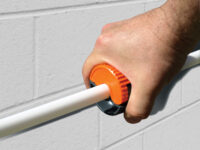
Easily and quickly cut tubing – even in confined spaces – with the AutoCut® family of copper and plastic tubing cutters from General Pipe Cleaners.
Offering true “one-hand” operation with no knobs to turn, AutoCut tools for copper tubing are more compact and convenient than using conventional copper tubing cutters. And, AutoCutPL® plastic tubing cutters offer a similarly fast, easy way to cut PEX and CPVC-CTS plastic tubing.
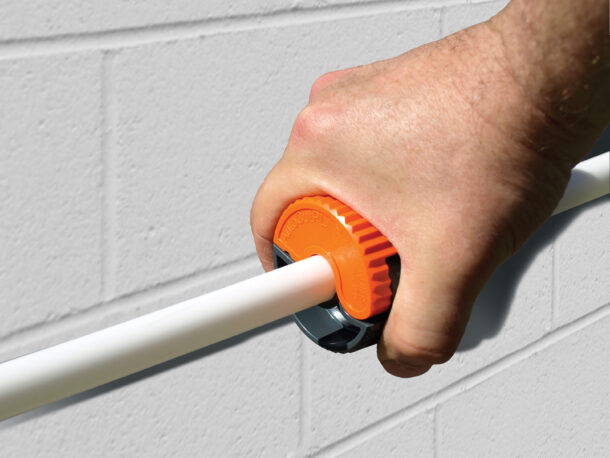
Just close the gate over the tube and, while squeezing the gate closed, rotate AutoCut in the direction of the arrows. The hardened steel cutting wheel automatically tightens as you twist, quickly producing clean, uncrushed, square cuts in as little as one rotation.
Great for use in tight workspaces, AutoCut solutions let you cut tubing with less than one inch of clearance. Both AutoCut and AutoCutPL come in three sizes – 1/2”, 3/4”, and 1”. They fit in the palm of your hand. Carry one of each in your toolbox!
Get hundreds of cuts with accuracy and ease. The handy blade guard protects your fingers – and easily replaceable AutoCut blades – from workplace and toolbox damage.
For more information, contact the Drain Brains® at General at 800-245-6200, or visit https://drainbrain.com/autocut

Back in the day he was known as DJ Reggie Nell, and he could spin records with the best of ’em. A former DJ while working in the trades, Germaine Nelson, president, Capitol Plumbing & Heating, Bowie, Md., now is a full-service residential plumbing OG, specializing in water heaters, waste and venting for the surrounding Read more
Back in the day he was known as DJ Reggie Nell, and he could spin records with the best of ’em. A former DJ while working in the trades, Germaine Nelson, president, Capitol Plumbing & Heating, Bowie, Md., now is a full-service residential plumbing OG, specializing in water heaters, waste and venting for the surrounding DC area.

Nelson started his plumbing career back in high school, working with his uncle at a plumbing company during the summer. He also worked on pluming through his high school vocational program. “I went to school for a half day, then went to the job site the second half,” says Nelson. As soon as Nelson graduated, he started as an apprentice full time. “Seventeen years later, I own a plumbing company—started it from the ground up,” continues Nelson.
 Early in his career, Nelson throws kudos the owner of 3D Plumbing, a small plumbing company for which Nelson worked. “The owner Dennis took me under his wing, and we still talk often. I consider him a mentor to this day,” says Nelson.
Early in his career, Nelson throws kudos the owner of 3D Plumbing, a small plumbing company for which Nelson worked. “The owner Dennis took me under his wing, and we still talk often. I consider him a mentor to this day,” says Nelson.
It wasn’t necessarily all smooth sailing. Throughout the journey, Nelson worked for a well-known company in the area as a service tech. They wanted to expand in a different part of the area, so he was tasked with building that area up, with the current contacts that he had.
Impressively, Nelson made more than $500,000 for that company within six months. “I asked for a raise, and the owner told me, ‘I can’t justify it but I can get you a new truck.’ At that moment, I knew it was time to go. I gave my two weeks’ notice,” says Nelson.
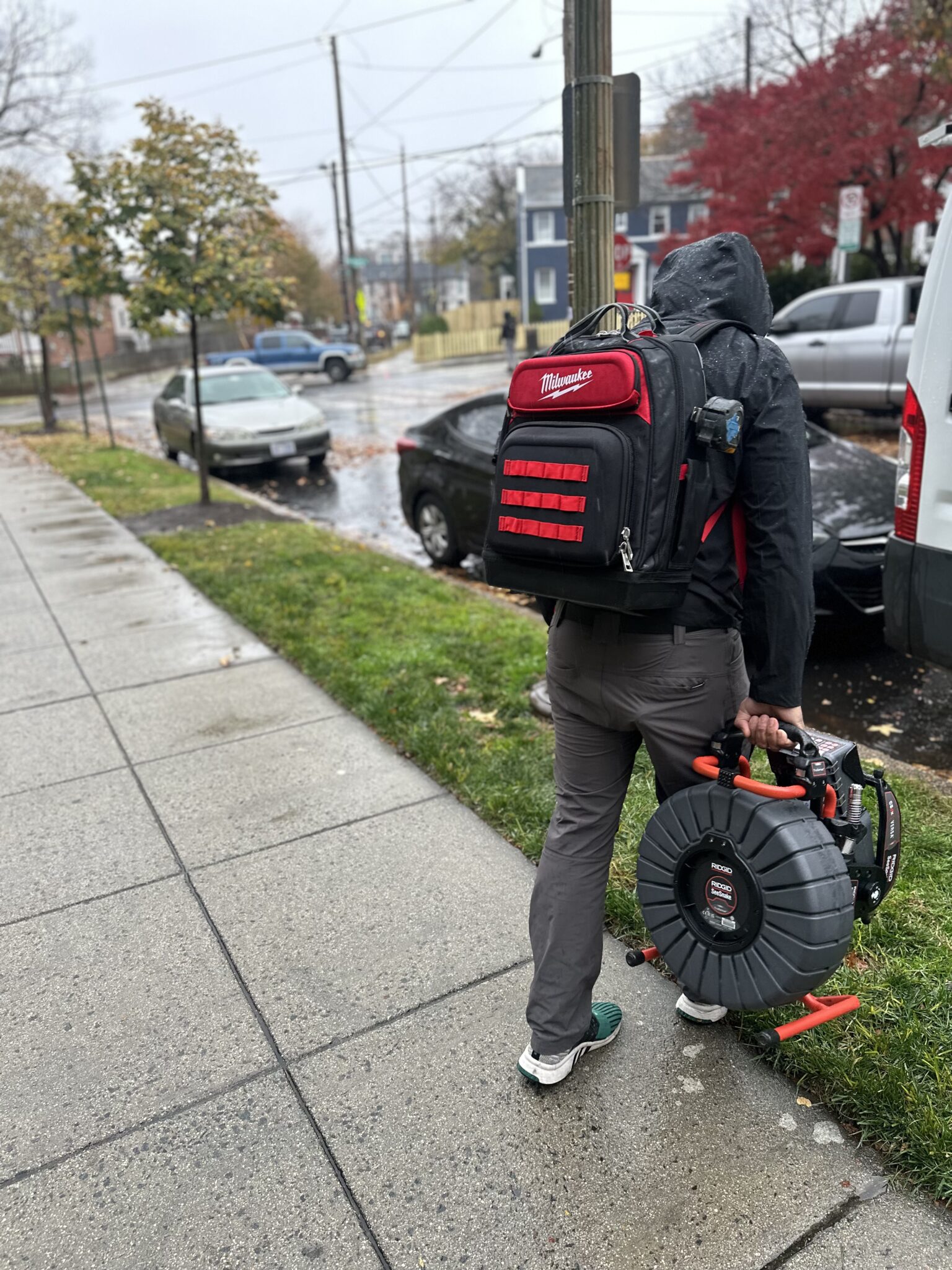 Nelson’s advice for anyone thinking about starting a company? “I would say just do it. You will have bumps and bruises along the way, but through dedication and consistency, you’ll succeed. Don’t give up on your vision.”
Nelson’s advice for anyone thinking about starting a company? “I would say just do it. You will have bumps and bruises along the way, but through dedication and consistency, you’ll succeed. Don’t give up on your vision.”
Challenges/Rewards
The most challenging aspects of the job, says Nelson, can be dealing with customers. “You have to learn how to put yourself in their position and understand what their needs area.”
Conversely, Nelson says it’s rewarding when you face a difficult challenge, but you overcome it with patience and skill. “I tell people all the time, plumbing is not hard, but finding a solution is the ultimate reward. You can sleep at night knowing you’re making a difference in society.”
And, according to Nelson, it starts early for those thinking of entering the trades, “Learn as much as you can because you will not know it all. Find your niche within the trade and foster that skill,” says Nelson.
Social Media
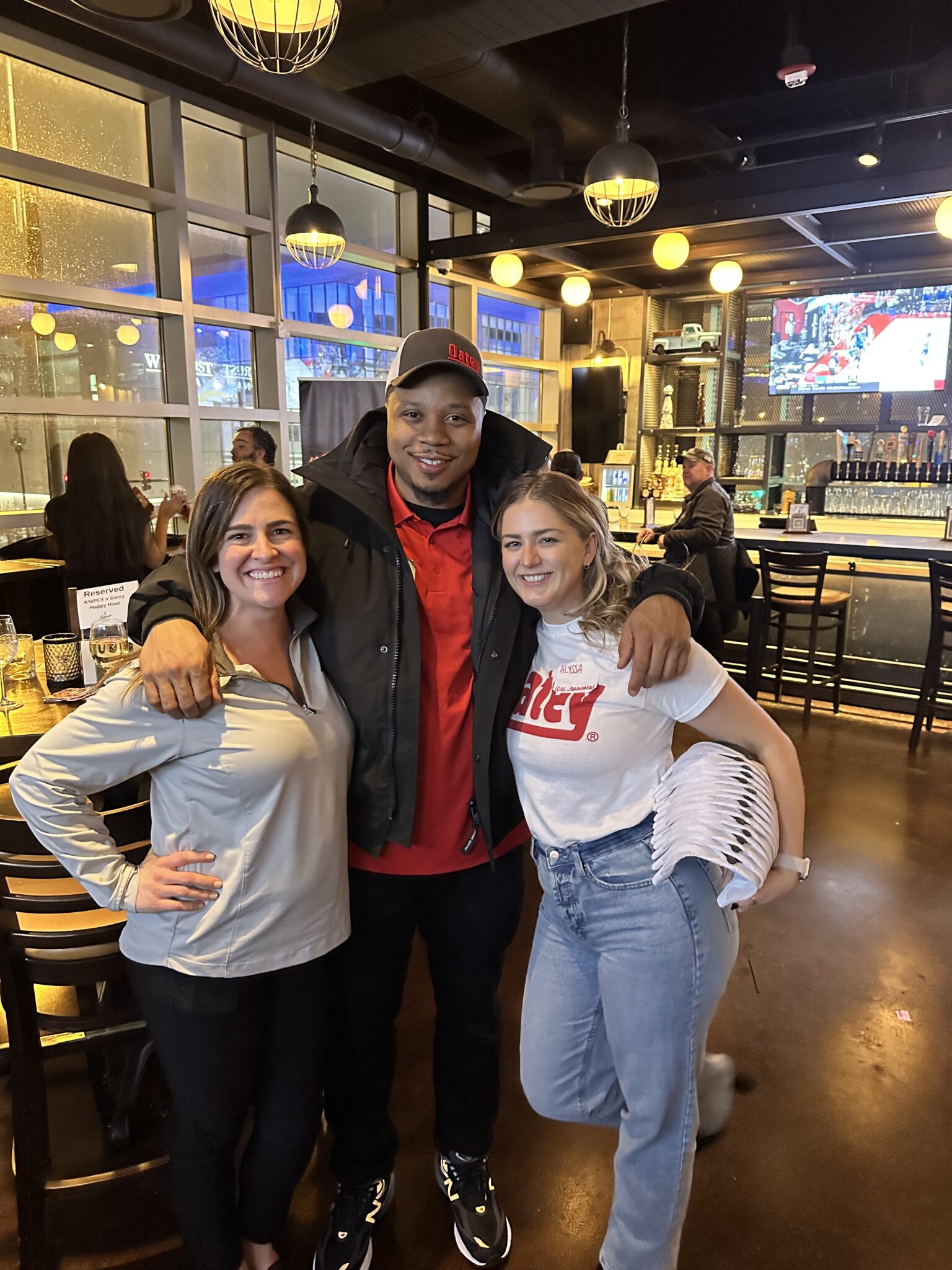 Nelson (@capitolmech) admits that social media has helped tremendously with making business connections and long-lasting friendships. “If it wasn’t for social media, I would not know about different trade shows, certain tools that makes the job easier and certain companies. I dedicate a lot of time to social media, more than I should, but it’s a lifestyle at this point,” says Nelson.
Nelson (@capitolmech) admits that social media has helped tremendously with making business connections and long-lasting friendships. “If it wasn’t for social media, I would not know about different trade shows, certain tools that makes the job easier and certain companies. I dedicate a lot of time to social media, more than I should, but it’s a lifestyle at this point,” says Nelson.
Through time and dedication on social media, Nelson has become an ambassador for various plumbing manufacturers. “Being an ambassador for different companies is special,” says Nelson. But he also says that it’s big task when a number of companies want to hire you as an ambassador because of your social media footprint. “Oatey, for instance, has really opened the door for a lot of these opportunities.”
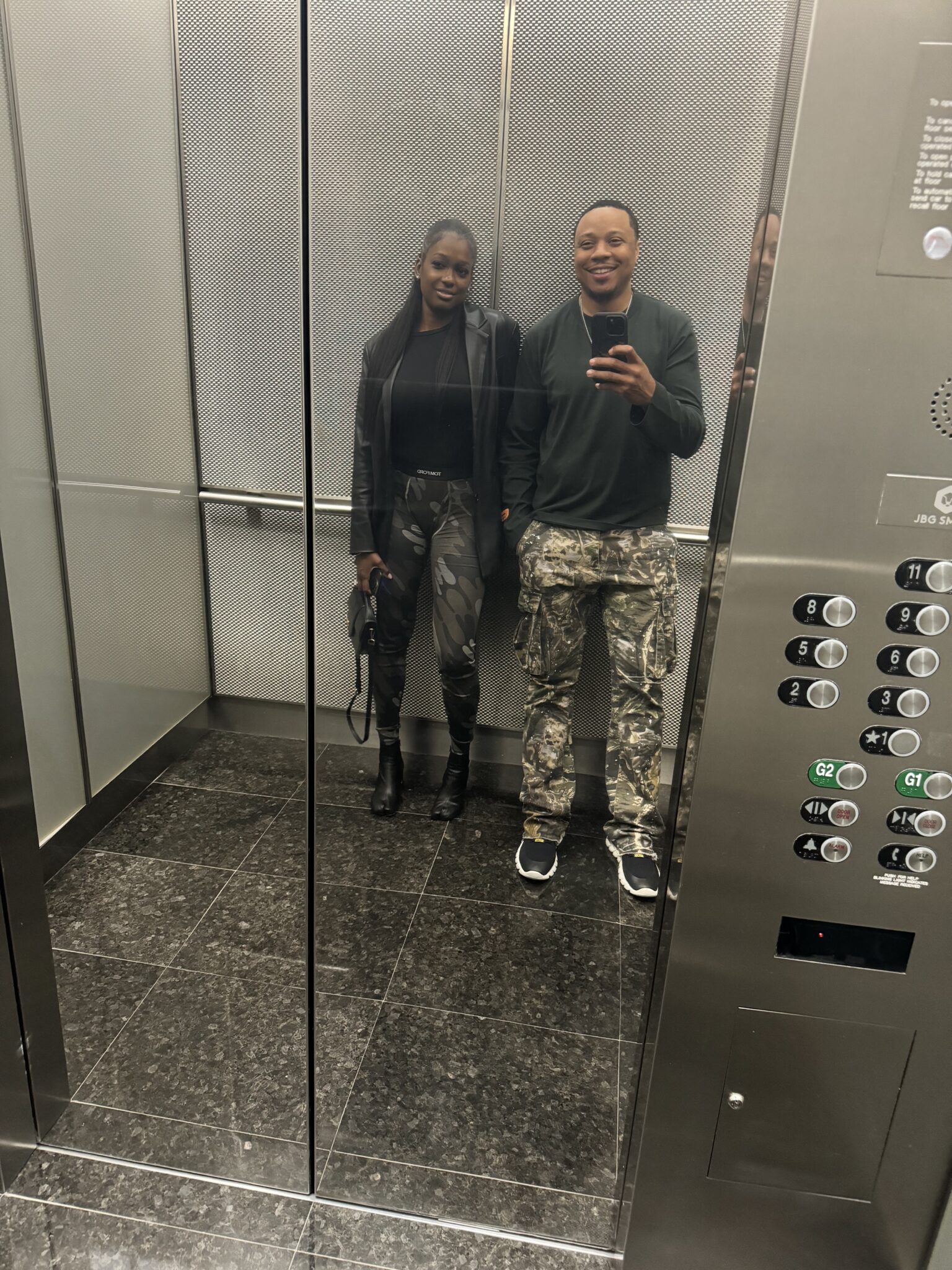 And throughout this rise in popularity and visibility with social does Nelson consider himself a mentor to others? “I do consider myself a role model, not by choice, but through social media,” says Nelson. “I feel like I’ve been put into that position.”
And throughout this rise in popularity and visibility with social does Nelson consider himself a mentor to others? “I do consider myself a role model, not by choice, but through social media,” says Nelson. “I feel like I’ve been put into that position.”
When he’s not hard at work on the job or posting to IG, you’ll find Nelson spending time with family, attending his son’s baseball games, bowling, getting together with friends, or perhaps you’ll see him soaring in the sky fulfilling his bucket list of skydiving. Nevertheless, “It’s extremely important to make an effort to put work down and be intentional about taking care of your mental health, and being there for those who really depend on you,” says Nelson.

We have to admit, as a society most Americans have become lazier, or perhaps we’ve been conditioned to expect more, faster, with little effort as possible. Literally never having to leave the house for items delivered to your front door is just one shining example. But, hey, what’s not to like? Yet, this begets a Read more
We have to admit, as a society most Americans have become lazier, or perhaps we’ve been conditioned to expect more, faster, with little effort as possible. Literally never having to leave the house for items delivered to your front door is just one shining example. But, hey, what’s not to like?
Yet, this begets a larger problem. Because homeowners can get something cheaper delivered to them in a relatively short amount of time lends itself to receiving, what I call, in some instances, junk. Eliminating the professional plumbing installer is a problem in and of itself, but do we really know where these items come from? Take, for example, products within our own plumbing and HVAC markets? Tools, fittings, pumps, plumbing fixtures, etc., are now “flooding” the streets with no real traceable origin, and no compliance or testing to boot.
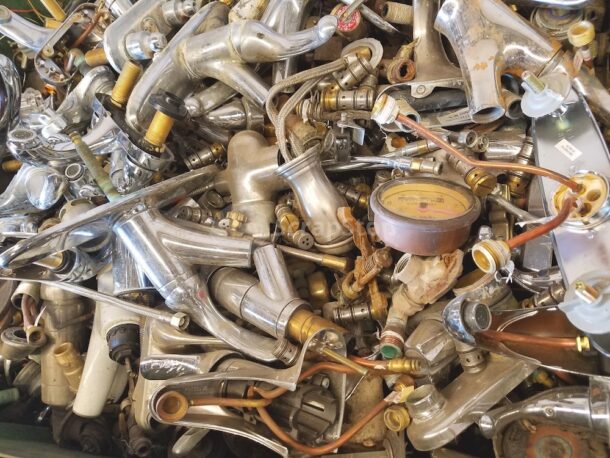
The issue of counterfeit or noncompliant products on various e-commerce platforms is a real concern of the industry. A couple of weeks ago, I attended the Plumbing Industry Leadership Coalition (PILC) and this topic of conversation came up; it was presented to the attendees that on behalf PILC—of what I call all of the acronyms in the industry (ASPE, PHCC, IAPMO, PMI, etc.)—a letter was being drafted to legal counsel at Amazon, for example.
In fact, one of the charter members of PILC mentioned that they had purchased 25 showerheads off of an e-commerce site. These items claimed to be nearly 2.0 gallons per minute, and when measured at local testing facilities, approximately 20 out of the 25 fixtures were actually near a 6.0 gallon per minute measurement. That’s a huge discrepancy.
And that’s just it. Getting stuff delivered to your door—relatively quickly and cheaply—can be good for your endorphins, but it also can be a huge problem. There is no testing, certification or compliance happening from these “third-party vendors.” As mentioned above, it can cause harmful risks, and could potentially cause a water sustainability problem. Again, therein lies the problem.
Realistically, what can be done about it? PILC suggests a number of action items, which include implementing a stricter verification process, ensuring that all legal and safety standards by either requiring certification or at least to verify that certification claims are true, and provide better transparency: provide clear information about the compliance and certification of products, making it easier for consumers to make informed decisions.

The new distribution center will serve all of the company’s branch locations in the Upper Midwest as well as direct-to-customer deliveries Exotec®︎, a global warehouse robotics provider, announced that First Supply, the largest Wisconsin-based wholesaler of HVAC, Builder, Plumbing, Lighting, Waterworks, Industrial PVF, Pump, Well and Septic supplies, has partnered with Exotec to install cutting-edge warehouse Read more
The new distribution center will serve all of the company’s branch locations in the Upper Midwest as well as direct-to-customer deliveries
Exotec®︎, a global warehouse robotics provider, announced that First Supply, the largest Wisconsin-based wholesaler of HVAC, Builder, Plumbing, Lighting, Waterworks, Industrial PVF, Pump, Well and Septic supplies, has partnered with Exotec to install cutting-edge warehouse robotics at its new 308,000-square-foot distribution center in Western Wisconsin.
Like many companies experiencing strong growth, First Supply was challenged with changing its operating model to reimagine the possibilities of its supply chain. This included finding a solution to manage a growing variety of stock-keeping-units (SKUs), effectively utilize available space, and reduce labor-intensive manual picking practices. By automating its warehouse with Exotec’s Skypod System, First Supply aims to improve productivity, optimize resource utilization, and ultimately better serve its customers.
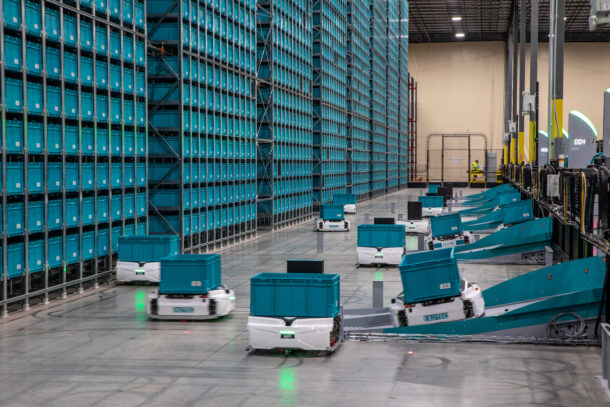
First Supply’s Skypod system will consist of over 43,000 storage bins, 36 robots, three picking stations, and three induction work stations. Anticipating continuous growth, First Supply has designed the distribution center to easily scale its storage capacity by up to 30% in the system by adding bins and robots. The system will make use of Exotec’s smart conveying technology, Skypath, to feed six packing stations and a sortation loop with 12 outbound destination lanes. The distribution center will support all of the company’s branch locations in the Upper Midwest, as well as effectively supplying direct-to-customer deliveries.
“As a 127-year-old, 5th generation company, First Supply is committed to innovating how our employees experience work daily. Our rich history has laid the groundwork for success in distributing innovation and fostering partnerships in our communities, with our customers, and among our partners,” says Katie Poehling Seymour, President & CEO at First Supply. “We’re transforming our supply chain, focusing on optimizing inventory management through enhanced technology and refined procedures, exemplified by our new distribution center.”
First Supply has chosen to deploy Exotec’s Skypod system in its distribution center, with the goal of innovating its current operations to prioritize its workforce and enable further business growth. First Supply is excited to enhance efficiency while also being able to make the warehouse a more enjoyable workplace for its employees.
“We believe in working smarter, not just harder. Robotics provide us with an efficient means to store and retrieve items, enhancing efficiency and enabling us to swiftly adapt to the evolving demands of our business,” Poehling Seymour highlights. “We foresee a bright future for our company, driven by human connections in our operations while collaborating with companies like Exotec to accelerate our innovations.”
“First Supply is among the first US companies in their industry to adopt cutting-edge robotics solutions for their warehouse,” states Stanislas Normand, Managing Director of Exotec, North America. “This not only demonstrates their capability for innovation but also establishes the gold standard for the industry in building customer-centric supply chain operations.”
About First Companies
Established in La Crosse, WI, First Companies is a regional distributor with 52 locations, including: 28 First Supply distribution branches, 5 First Waterworks branches, 1 Central Distribution Center, 14 Gerhard’s Kitchen, Bath and Lighting stores, and 4 Kohler Signature Stores by First Supply in the upper Midwest. Founded in 1897, First Companies employs over 650 people, is a family-owned, single source provider of HVAC, Builder, Plumbing, Lighting, Waterworks, Industrial PVF, Pump, Well and Septic supplies. For more information, visit: FirstSupply.com
About Exotec
Exotec is a global warehouse robotics company powering the world’s largest brands. The company combines the best of hardware and software to offer elegant warehouse robotic systems that drive operational efficiency, add resiliency, and improve working conditions for warehouse operators. 50+ industry-leading brands including Gap Inc, Carrefour, Decathlon, and Uniqlo trust Exotec to improve their operations across 100+ sites worldwide. Learn more at Exotec.com.

Airzone Control, provider of intelligent and innovative HVAC control solutions, has announced the appointment of Cameron Davis as the new Regional Sales Manager for the West Territory. This strategic hire underscores the company’s dedication to bolstering its market presence and enhancing personalized customer support throughout the western United States. Cameron Davis brings a robust background Read more
Airzone Control, provider of intelligent and innovative HVAC control solutions, has announced the appointment of Cameron Davis as the new Regional Sales Manager for the West Territory. This strategic hire underscores the company’s dedication to bolstering its market presence and enhancing personalized customer support throughout the western United States.
 Cameron Davis brings a robust background in HVAC sales, underscored by his impactful tenures at D-Techsales and Fieldpiece Inc., where he excelled in regional sales management roles. At D-Techsales in San Juan Capistrano, CA, Cameron led sales efforts across multiple states, achieving a 65% increase in business within his first year by providing tailored support to HVAC contractors and wholesalers. At Fieldpiece Inc., Cameron managed a network of 54 sales representatives nationwide. His strategic initiatives and hands-on customer engagement contributed to sustained revenue growth and enhanced client satisfaction across the board.
Cameron Davis brings a robust background in HVAC sales, underscored by his impactful tenures at D-Techsales and Fieldpiece Inc., where he excelled in regional sales management roles. At D-Techsales in San Juan Capistrano, CA, Cameron led sales efforts across multiple states, achieving a 65% increase in business within his first year by providing tailored support to HVAC contractors and wholesalers. At Fieldpiece Inc., Cameron managed a network of 54 sales representatives nationwide. His strategic initiatives and hands-on customer engagement contributed to sustained revenue growth and enhanced client satisfaction across the board.
As Airzone’s Regional Sales Manager for the West Territory, Cameron will direct sales strategies, optimize team performance, and cultivate enduring relationships with HVAC dealers in the region. His approach will focus on high-touch, in-person engagements, ensuring that Airzone’s solutions are perfectly aligned with customer needs.
Victoria Garcia Massimo, Operations Manager for Airzone North America, remarked, “Cameron’s profound expertise in the HVAC sector and his track record of transformative sales leadership are exactly what Airzone needs as we expand our solution portfolio in North America. His ability to connect with clients and drive results through customized solutions will accelerate our mission of empowering dealers to offer smarter, more efficient HVAC solutions.”
“I am excited to bring my passion for the HVAC industry and personalized customer service to Airzone,” Cameron Davis stated. “I am committed to deepening our client relationships through direct interactions, helping them navigate new refrigeration regulation challenges and seize sustainability incentive opportunities with our innovative products.”
Learn more about Airzone at airzonecontrol.com.
